 Petzlover
Petzlover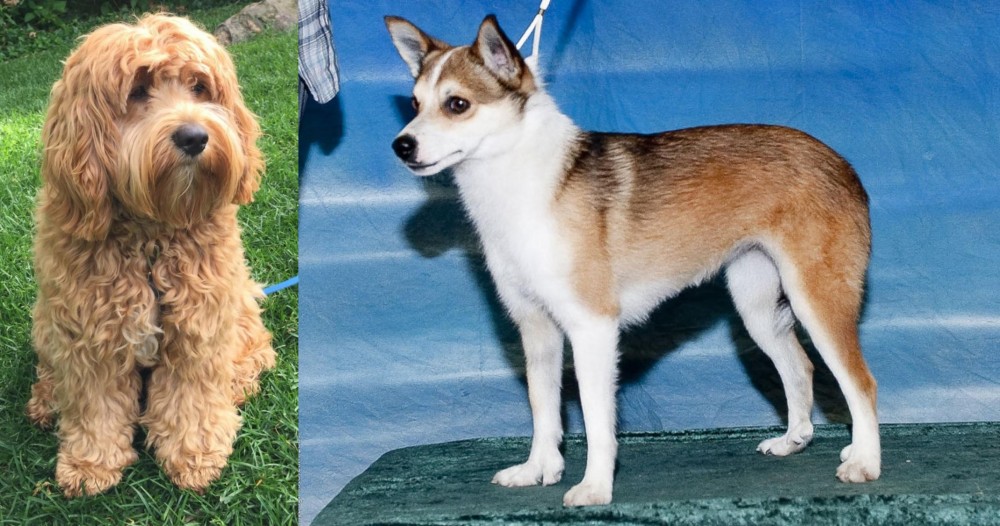 Cockapoo is originated from United States but Norwegian Lundehund is originated from Norway. Both Cockapoo and Norwegian Lundehund are having almost same height. Both Cockapoo and Norwegian Lundehund are having almost same weight. Both Cockapoo and Norwegian Lundehund has almost same life span. Both Cockapoo and Norwegian Lundehund has almost same litter size. Both Cockapoo and Norwegian Lundehund requires Moderate Maintenance.
Cockapoo is originated from United States but Norwegian Lundehund is originated from Norway. Both Cockapoo and Norwegian Lundehund are having almost same height. Both Cockapoo and Norwegian Lundehund are having almost same weight. Both Cockapoo and Norwegian Lundehund has almost same life span. Both Cockapoo and Norwegian Lundehund has almost same litter size. Both Cockapoo and Norwegian Lundehund requires Moderate Maintenance.
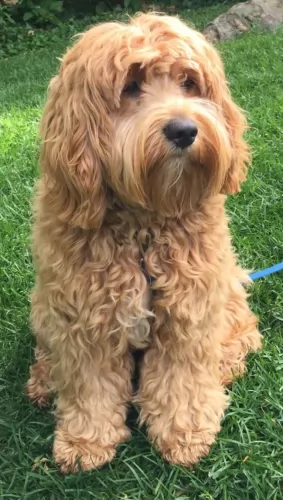 The gorgeous Cockapoo is a mixed-breed dog. He comes from mixing the Cocker Spaniel with a Poodle.Both these dogs have their own histories.
The gorgeous Cockapoo is a mixed-breed dog. He comes from mixing the Cocker Spaniel with a Poodle.Both these dogs have their own histories.
Known as a ‘designer dog’, the Cockapoo has been around since the 1950s in the United States already, although pure-breed associations don’t recognize the Cockapoo. There are some dog clubs that are working to establish the Cockapoo as a recognized breed.The Cockapoo Club of America was founded in 1998.
 The Norwegian Lundehund hails from the island of Vaeroy, Norway and was created for the purpose of puffin hunting.
The Norwegian Lundehund hails from the island of Vaeroy, Norway and was created for the purpose of puffin hunting.
Now that these puffins are a protected species, the dog is no longer used for hunting and has become a companion dog.
The breed decreased in numbers during- and after World War II because the islands where he came from had an outbreak of distemper. It was in 1963 that another outbreak occurred and the dogs were almost wiped out. A breeding program saw their numbers being built up.
It was in 2011 that the dog was recognized by the American Kennel Club.
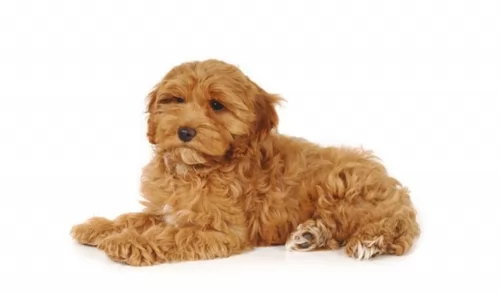 The Cockapoo is a mixed breed- or hybrid dog that has become very popular in recent years. He is a small dog, but robust, and stands between 25 – 38cm in height and weighs between 5 and 11kg.
The Cockapoo is a mixed breed- or hybrid dog that has become very popular in recent years. He is a small dog, but robust, and stands between 25 – 38cm in height and weighs between 5 and 11kg.
The Cockapoo has floppy ears, and the tail has always been docked to give the dog an attractive, distinctive look. Without tail docking, the natural tail is long.
The coat color of cockapoos is varied and can be anything like tan, white, cream, blonde, brown or black and sometimes even a combination of these colors. Cockapoo coats can vary from silky smooth to tight curls, although they usually fall somewhere in between.
He is a low shedder and you’ll often hear him being described as hypoallergenic, which is an advantage for Cockapoo owners who might be allergic to pet hair.
He is small and robust, always ready for a game and is loving, with a sweet, alert expression on his face. Even as an adult, his antics and looks make one think that he is just a big puppy.
He makes a wonderful pet and gets on well with adults and children as well as other pets. He is intelligent and can be easily trained, and when you shower him with attention he is a happy, energetic, social, fun-loving dog who goes out of his way to please you and be the perfect pet.
The personality of the Cockapoo isn’t set in stone and while one dog may be territorial and somewhat aggressive, others aren’t. Many dogs simply turn out according to the way they are raised.
 As a spitz-type dog, with the Lundehund you’ll recognize the typical spitz-dog characteristics – the erect ears and the tail that curves over the back.
As a spitz-type dog, with the Lundehund you’ll recognize the typical spitz-dog characteristics – the erect ears and the tail that curves over the back.
He is a small to medium sized dog standing at 30 – 40cm and weighing 6 – 9kg. He is an active dog and is as agile as a fox.
He has a dense double coat which is white, reddish/tan with some black tips. He is a dog which sheds constantly.
Strangely this dog has 6 toes and his rear pads have elongated foot pads which have helped the dog be able to climb over rocks. He also has a flexible type of neck that is capable of craning back so that the head touches the spine. The dog has some unique features and wriggling in and out of small spaces is another of his characteristics. In fact he can do things that you would not imagine a dog could do.
When you have a Lundehund in your life you’ll agree he has a happy, amicable personality. He is non-aggressive.
He will require training and socialization as he is an independent dog who can be obstinate. He is quite aloof with strangers too and once he starts barking at them he tends to want to continue. Training him will put an end to that irritating behavior. He is a loving, loyal dog, enjoying the company of his human family.
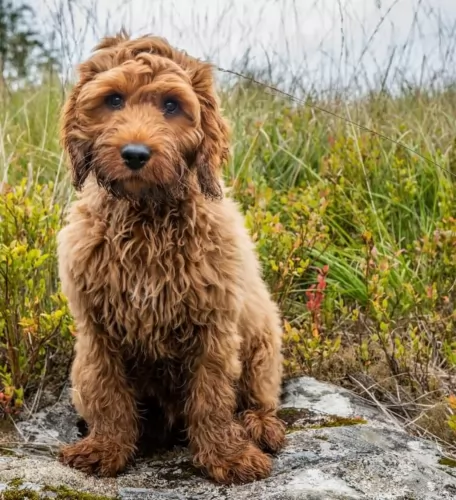 Cockapoos have become popular pets because they have a host of good qualities from both the breeds that make this pet – the cocker spaniel and the poodle.
Cockapoos have become popular pets because they have a host of good qualities from both the breeds that make this pet – the cocker spaniel and the poodle.
They are jaunty, sweet looking, amicable, social, fun-loving, devoted, loyal, loving and low-shedding as an added perk. He loves spending time with his human family and will become unhappy and bored if he isn’t made to feel absolutely part of the family.
Look after your Cockapoo, because when you provide him with good food, you take time to exercise him and you love him to bits, you’ll find that you’ve got in him all the makings of a wonderful friend.
 The Norwegian Lundehund isn’t your everyday dog and in fact he is known as a primitive breed. Perhaps he wouldn’t be the best dog to have if you’re a first-time dog owners as training is quite difficult too.
The Norwegian Lundehund isn’t your everyday dog and in fact he is known as a primitive breed. Perhaps he wouldn’t be the best dog to have if you’re a first-time dog owners as training is quite difficult too.
People who are willing to take a chance on him say that with training and socialization he can become a loving canine companion.
 The Cockapoo is generally a healthy, good tempered, mix-breed dog and with good care he can live to be anything from 13 – 15 years of age and even older.
The Cockapoo is generally a healthy, good tempered, mix-breed dog and with good care he can live to be anything from 13 – 15 years of age and even older.
Although you’re not likely to find any serious health problems with the Cockapoo, it is wise to know that there are many common dog illnesses that attack any dog, including the Cockapoo. Some of these are hip dysplasia, ear infections, dental disease which can affect other parts of the body as well as eye disorders.
Referring to ear infections, as a long-eared dog, the ears will need to be cleaned with the Cockapoo to avoid ear infections. Simple cleaning methods are explained at the veterinarian. Some eye conditions like progressive retina atrophy are common in both the dogs that make the Cockapoo.
 The Lundehund is prone to digestive disorders but even so he has got a good chance of living to be 11, 12, 13 or 14 years of age with good care.
The Lundehund is prone to digestive disorders but even so he has got a good chance of living to be 11, 12, 13 or 14 years of age with good care.
He is however, one of these dogs prone to health problems of which chronic intestinal disease is one. Its the kind of illness that can recur because it is resistant to treatment.
Experts on these dogs say that they should have a fecal test done every 6 months or so, saying that one thing a bit negative with this dog breed is that you may well be forking out quite a bit on chronic veterinary care.
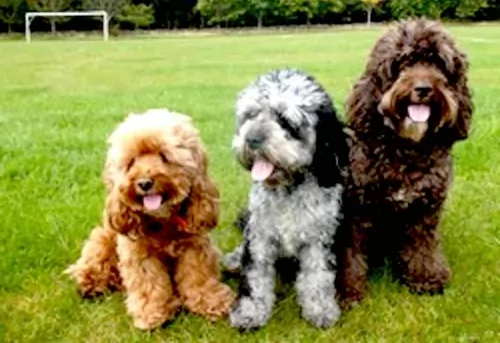 The Cockapoo can have a long, straightish coat or it can be wavy or curly. The coat will need a good brushing at least twice a week to avoid matting. He may well need a trip to the doggy parlor to have his hair professionally clipped.
The Cockapoo can have a long, straightish coat or it can be wavy or curly. The coat will need a good brushing at least twice a week to avoid matting. He may well need a trip to the doggy parlor to have his hair professionally clipped.
What is also noticeable about this dog is that he is odorless too. Bathing him doesn’t have to be a regular occurrence at all, as too much bathing strips the coat of its natural oils, irritating and drying out the skin.
The Cockapoo is an energetic little dog and he will require exercise from you. Make it fun for him seeing that he is a fun loving dog, and take him on walks and have ball games with him.
There are many different commercially produced dog foods, and some of the top quality ones offer an excellent mix of meat, fish or poultry in them with vitamins and minerals.
These top quality foods are usually found at your vet or in special pet stores and are not ordinarily found at the supermarket. Make sure to feed your Cockapoo the right amount of food according to the label on the packaging.
You can also include cooked brown rice, vegetables and chicken into his kibble to give him some variety and give him some raw meat in his diet from time to time. This will help with avoiding skin allergies. Make sure he always has access to clean, cool water.
 Like any other dog, the Norwegian Lundehund will do well on the best quality food. If you buy him commercially manufactured food, check the ingredients on the packaging. Lots of these lower quality foods are made from ingredients that are toxic for your pet, so buy a good quality one.
Like any other dog, the Norwegian Lundehund will do well on the best quality food. If you buy him commercially manufactured food, check the ingredients on the packaging. Lots of these lower quality foods are made from ingredients that are toxic for your pet, so buy a good quality one.
Buy food according to your dog’s age and activity levels. To make his meals more interesting, add in some delicious home prepared food for him. Stay away from spicy, exotic foods and go for something like boiled chicken, brown rice and vegetables. Some raw meat added to the kibble from time to time can also do wonders for your pet as he requires a high-protein diet. Make sure he always has access to fresh, cool water.
Other ‘caring’ things to do to make sure your pet has a quality lifestyle is -
Brush his hair twice a week as he is a fairly heavy shedder. Not only does it keep the coat nice and shiny, it builds up a bond between you and your pet.
Check his ears and eyes regularly to make sure they are free from infection.
Clip his nails when they get long as your pet can hurt himself if the nails hook onto things.
Whenever he is ill, get him to the vet for a check-up.
Make sure he has a nice safe, dry, warm, snug place to sleep.
Keep him well exercised. A dog that is put into the backyard and more or less forgotten will be most miserable. Why get a pet if you don’t want to make him a 100% part of the family?